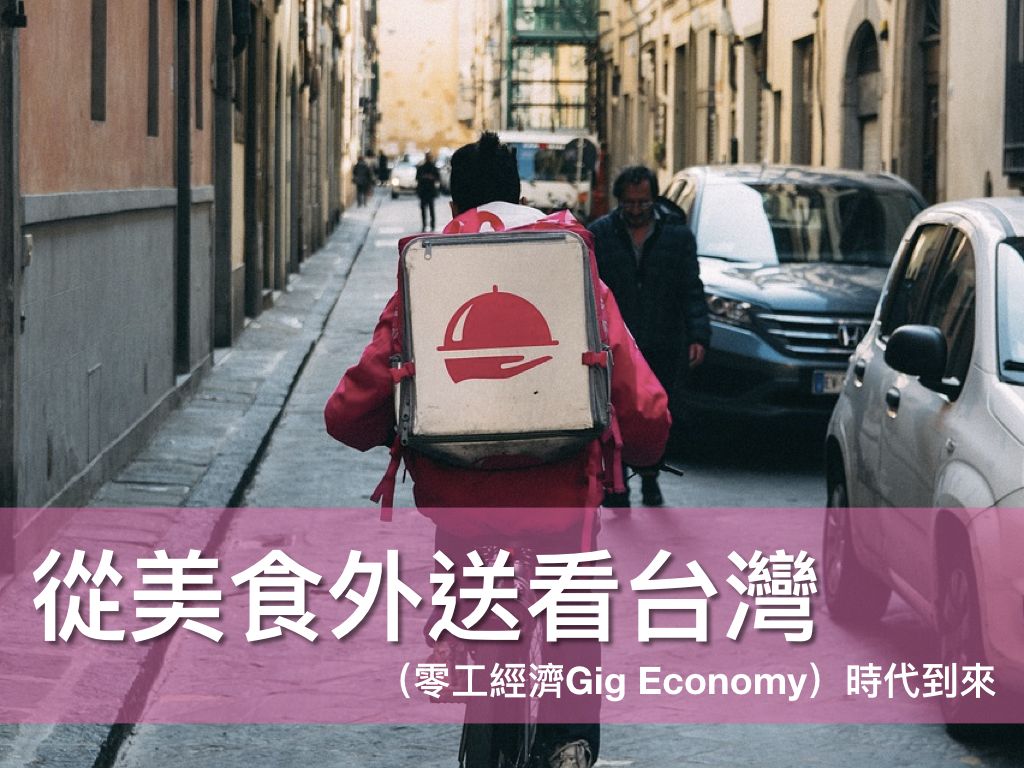Looking at Taiwan from Food Delivery ~ The Arrival of the Gig Economy

Recently, Taiwan's food delivery has been heatedly discussed in the news media. Because of the frequent traffic accidents and casualties caused by delivery staff, of course, it has also attracted the government's attention to such a new type of economy. At present, the employment of delivery platforms and delivery staff is still contracted. The relationship has also been roughly determined, and the legal part is not my specialty, but what I want to discuss is why the gig economy such as food delivery is suddenly so popular in Taiwan?
In fact, the sudden popularity of the delivery market has only happened in the past few months. About this year, the food delivery staff can earn more than 100,000 yuan per month by taking orders seriously. Coupled with the flexibility of time, they will immediately attract a lot of foreigners. Sending people to try, the market instantly flooded into a large number of delivery personnel, but this also reflects a problem, that is, the low salary problem in Taiwan. Low wages in Taiwan are not news all the time. Many data show that the real average wages in Taiwan have not increased but decreased in the past ten years, not to mention that prices and housing prices in Taiwan are rising, and many people are living in relatively hard conditions.

So from my observation, the sudden number of people participating in the delivery platform is not necessarily because the delivery market is very large, but the market where Taiwan is willing to part-time is very large. Under this business model, users can pay a small amount of delivery through the app. For the service fee, the food can be delivered directly to the home (sometimes because of the platform’s discounts, it is even cheaper than going directly to the store), and the delivery staff can charge a service fee for each delivery, and the platform will even give delivery staff who take more orders. Rewards are given for the number of orders received, so the courier will want to take more orders as soon as possible at the same time.
What’s special about this economic model is that the platform’s real revenue comes from the profit of the cooperative stores. Each store may need to take a profit of about 30% after completing the order. So why is the store willing? It is also because the economy has continued to slump in recent years, and it is not easy for stores to do business. In order to gain popularity and develop customer sources, many stores are also willing to try.

And different gig economies like this are becoming more and more popular. In fact, Taiwan's very popular claw machine business a while ago, I think it is also a gig economy, but it combines the concept of leasing. I think there will be more and more in the future. The new type of business model will conform to the concept of the gig economy, allowing participants to freely choose the time to cooperate, but relatively speaking, they will also face legal challenges.
Looking back at the delivery platform, although it is frequently reported that the competent authority wants to properly regulate the delivery platform, but whether a new economic model is suitable for the regulations designed in the past, I am skeptical. I just hope that the innovation can continue. I also hope that the problem of low wages in Taiwan can be gradually improved. After all, if the income from work is sufficient, so many people will not need to work part-time.
Like my work? Don't forget to support and clap, let me know that you are with me on the road of creation. Keep this enthusiasm together!

- Author
- More